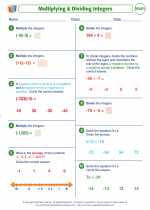Rules of Exponents Study Guide
Exponents are a shorthand way of expressing repeated multiplication. The rules of exponents help us simplify and manipulate expressions involving exponents. Here are the key rules to remember:
Rule 1: Product of Powers
When multiplying two powers with the same base, you add the exponents:
am * an = am+n
Rule 2: Quotient of Powers
When dividing two powers with the same base, you subtract the exponents:
am / an = am-n
Rule 3: Power of a Power
When raising a power to another power, you multiply the exponents:
(am)n = am*n
Rule 4: Power of a Product
When raising a product to a power, you distribute the power to each factor:
(ab)n = an * bn
Rule 5: Power of a Quotient
When raising a quotient to a power, you distribute the power to the numerator and denominator:
(a/b)n = an / bn
Rule 6: Zero Exponent
Any non-zero number raised to the power of 0 is equal to 1:
a0 = 1
Rule 7: Negative Exponent
A negative exponent indicates the reciprocal of the base raised to the positive exponent:
a-n = 1 / an
These rules are fundamental for simplifying and solving problems involving exponents. Practice applying these rules to various exponent expressions to solidify your understanding.
[Rules Of Exponents] Related Worksheets and Study Guides:
.◂Math Worksheets and Study Guides Eighth Grade. Integer operations
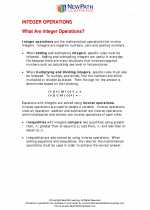
 Worksheet/Answer key
Worksheet/Answer key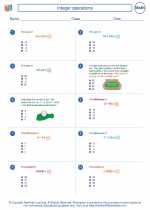
 Worksheet/Answer key
Worksheet/Answer key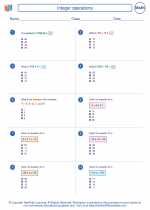
 Worksheet/Answer key
Worksheet/Answer key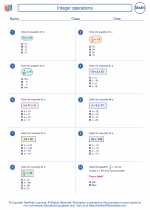
 Worksheet/Answer key
Worksheet/Answer key